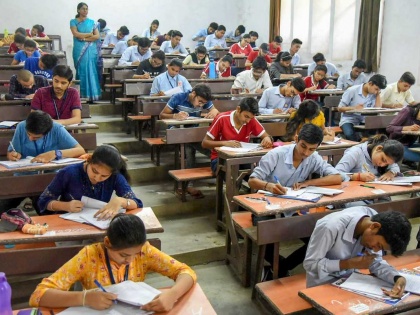President Droupadi Murmu Gives Assent to Bill Targeting Malpractices in Entrance Examinations
By Lokmat English Desk | Updated: February 13, 2024 19:47 IST2024-02-13T19:46:23+5:302024-02-13T19:47:54+5:30
President Droupadi Murmu granted her approval to the "Public Examinations (Prevention of Unfair Means) Bill, 2024" on Tuesday. The ...

President Droupadi Murmu Gives Assent to Bill Targeting Malpractices in Entrance Examinations
President Droupadi Murmu granted her approval to the "Public Examinations (Prevention of Unfair Means) Bill, 2024" on Tuesday. The legislation, introduced in the Lok Sabha on February 5 and swiftly passed on February 6, is designed to combat malpractices in entrance examinations and enhance transparency, fairness, and credibility in the public examinations system.
The bill defines "unfair means" as actions taken "for monetary or wrongful gain." These actions encompass leaking question papers, colluding in such leaks, unauthorized access or possession of question papers or Optical Mark Recognition response sheets, tampering with answer sheets, providing solutions during an exam, and directly or indirectly assisting candidates in a public examination.
The scope of the bill includes various crucial examinations conducted by prominent authorities such as:
- Union Public Service Commission (UPSC) - responsible for exams like Civil Services, Combined Defence Services, Combined Medical Services, and Engineering Services.
- Staff Selection Commission (SSC) - recruiting for Group C (non-technical) and Group B (non-gazetted) positions in the central government.
- Railway Recruitment Boards (RRBs) - recruiting Groups C and D staff in the Indian Railways.
- Institute of Banking Personnel Selection (IBPS) - hiring at all levels for nationalized banks and regional rural banks.
- National Testing Agency (NTA) - conducting exams like JEE (Main), NEET-UG, UGC-NET, and the Common University Entrance Test (CUET).
Additionally, the legislation covers "Ministries or Departments of the Central Government and their attached and subordinate offices for recruitment of staff."
The bill imposes strict penalties for violations, making all offences cognizable, non-bailable, and non-compoundable. This means arrests can be made without a warrant, and bail is not an automatic right. Offenders may face imprisonment ranging from three to five years and fines up to Rs 10 lakh.
Open in app